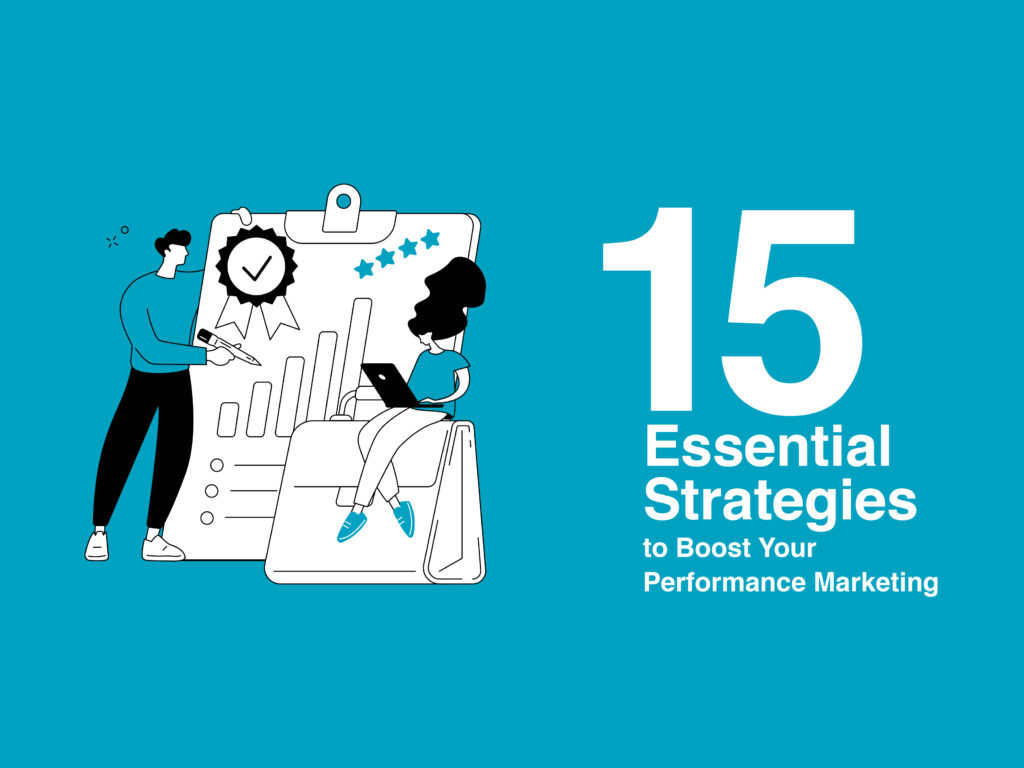In the fast-paced world of digital marketing, staying ahead of the curve is essential. To supercharge your performance marketing strategies, you need to focus on key performance indicators (KPIs) that truly matter. Let’s dive into 15 essential tips that will not only help you understand your marketing efforts but also enhance your overall performance.
1. Customer Acquisition Cost (CAC)
Understanding the Cost of Converting Leads to Customers.
Customer acquisition cost (CAC) is your guiding star when it comes to budget decisions. Don’t overspend on acquiring customers without ensuring profitability. Strike the right balance to maximize returns.
2. Lifetime Value of a Customer (LTV)
Determining the Long-Term Value of Your Customers.
Compare your CAC with the lifetime value of a customer (LTV). If your CAC exceeds LTV, it’s time to recalibrate your marketing strategy. Ensure that your investment yields sustainable returns over the customer’s lifetime.
3. Return on Investment (ROI)
Measuring the Gains Against Marketing Costs.
Calculate ROI by subtracting marketing expenses from sales growth and dividing it by marketing costs. This metric gives you a clear picture of the effectiveness of your marketing campaigns and ensures you’re getting a solid return on your investment.
4. Return on Ad Spend (ROAS)
Evaluating the Success of Advertising Campaigns.
For a more granular view, focus on ROAS. This ratio gauges revenue generated per dollar spent on advertising. Aim for a positive ratio to ensure your ad campaigns are not just driving traffic but also boosting your bottom line.
5. Marketing Qualified Leads (MQL)
Identifying Potential Customers Through Engagement.
MQLs are engaged leads that could evolve into serious prospects. Measure how many leads your marketing efforts are bringing in and nurture these relationships to potentially increase conversion rates.
6. Sales Qualified Leads (SQL)
Nurturing Leads into Prospective Customers.
A successful MQL transforms into a Sales Qualified Lead. This KPI helps you understand the efficiency of your marketing team in ushering leads to the sales department, enabling a smoother transition.
7. Follower Growth
Enhancing Brand Awareness Through Social Media.
For social media managers, follower growth is a pivotal metric. Increasing followers indicates improved brand awareness and engagement. Consider running sponsored campaigns strategically to boost your follower base.
8. Conversion Rate
Assessing the Success of Lead Attraction.
Conversion rate measures the percentage of visitors completing a desired action. Track this KPI to identify the success of your lead attraction strategies. A low conversion rate signals the need for a strategy rethink.
9. Website Visitors
Attracting and Monitoring Potential Customers.
Tracking website visitors helps evaluate the success of various campaigns, whether SEO-driven or social media-based. Understand where your traffic is coming from to refine your marketing strategy.
10. Social Media Engagement
Measuring Interaction and Brand Connection.
Engagement on social media is critical. Track likes, shares, comments, and mentions to analyze the success of your posts. Actively respond to engagement to foster a sense of community around your brand.
11. Referral Traffic
Identifying the Sources of Web Visitors.
Understanding where your web visitors come from is crucial for shaping your marketing strategy. Analyze referral traffic to tailor your approach and focus on channels driving the most visitors.
12. Net Promoter Score (NPS)
Gauging Customer Satisfaction and Loyalty.
NPS measures how likely customers are to recommend your business. Use this KPI to collect actionable feedback and insights. Listening to your customers will guide you in refining your marketing approach.
13. Organic Traffic
Assessing the Success of SEO Efforts.
Monitor organic traffic and keyword performance to gauge your SEO success. This KPI informs your organic and SEO strategy, ensuring your content ranks well for relevant keywords.
14. Event Attendance
Evaluating the Impact of Marketing Campaigns.
For event-driven campaigns, track attendance to measure their success. Understand how well your marketing efforts attracted people to your event and use this insight to refine future strategies.
15. Customer Retention
Utilizing Insights for Targeted Marketing.
Customer retention is a marketing KPI often overlooked. Use this metric to shape your messaging and campaigns. Understanding your customers better allows you to create more personalized and effective marketing strategies.
Ready to Elevate Your Marketing?
These 15 essential performance marketing strategies and KPIs are your toolkit for success. Regularly monitor and analyze these metrics to refine your approach continually. Remember, it’s not just about attracting customers but also about keeping them engaged and satisfied. Take charge of your marketing destiny today!
Ready to supercharge your marketing efforts? Book an appointment with our experts and take the first step toward marketing excellence!


